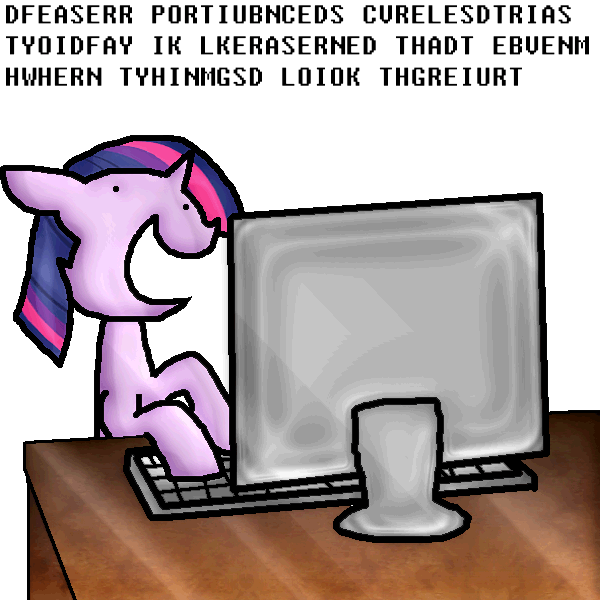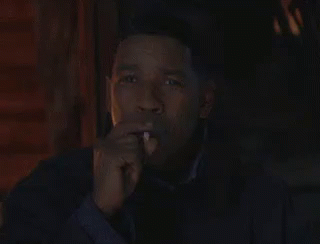Sensitive Christian Grey
The Fisher King
Listening to Taylor Swift in Prison
The first time I heard about Taylor Swift, I was in a Los Angeles County jail, waiting to be sent to prison for murder. Sheriffs would hand out precious copies of the Los Angeles Times, and they would be passed from one reader to the next. Back then, I swore that Prince was the best songwriter of my lifetime, and I thought Swift’s rise to teen-age stardom was an injustice. I’d look up from her wide-eyed face in the Calendar section to see gang fights and race riots. The jail was full of young men of color who wrote and performed their own raps, often about chasing money and fame, while Swift was out there, actually getting rich and famous. How fearless could any little blond fluff like that really be?
In 2009, I was sentenced to life in prison. Early one morning, I boarded a bus in shackles and a disposable jumpsuit, and rode to Calipatria State Prison, a cement fortress on the southern fringes of California. Triple-digit temperatures, cracked orange soil, and pungent whiffs of the nearby Salton Sea made me feel as though I’d been exiled to Mars. After six years in the chaos of the county jail, however, I could finally own small luxuries, like a television. The thick walls of Calipat, as we called the place, stifled our radio reception, but an institutional antenna delivered shows like “Access Hollywood,” “Entertainment Tonight,” and “TMZ.” I was irritated by the celebrity gossip, but it was a connection to the outside world, and it introduced me to snippets of Swift’s performances for the first time. Here and there, I’d catch her on “The Ellen DeGeneres Show” or “Fallon,” and was surprised by how intently she discussed her songwriting. I didn’t tell anyone that I thought she was talented.
In 2013, when my security level was lowered owing to good behavior, I requested a transfer to Solano state prison, the facility with a Level 3 yard which was closest to my family in the Bay Area. I got the transfer, but my property—a TV, CD player, soap, toothpaste, lotion, food—was lost in transit. I shared a cell with someone in the same situation, so, for months, we relied on the kindness of our neighbors to get by. Our only source of music was a borrowed pocket radio, hooked up to earbuds that cost three dollars at the commissary. At night, we’d crank up the volume and lay the earbuds on the desk in our cell. Those tiny speakers radiated crickety renditions of Top Forty hits.
During that time, I heard tracks from “Red,” Swift’s fourth studio album, virtually every hour. I was starting to enjoy them. Laying on the top bunk, I would listen to my cellmate’s snores and wait for “We Are Never Ever Getting Back Together” to come around again. When it did, I would think about the woman I had lived with for seven years, before prison. I remembered bittersweet times when my sweetheart had visited me in county jail. We’d look at each other through security glass that was reinforced by wire. It didn’t seem fair to expect her to wait for me, and I told her that she deserved a partner who could be with her. But we didn’t use the word “never,” and deep down I always hoped that we’d get back together. When I heard “Everything Has Changed,” I had to fight back tears of exaltation and grief. Swift sings, “All I knew this morning when I woke / Is I know something now / Know something now I didn’t before.” I thought back to our first date, and how we had talked and laughed late into the night. We had to force ourselves to get a few hours of sleep before sunrise.
After several months, my belongings, including my CD player, finally caught up with me. I was getting ready to buy “Red” from a catalogue of approved CDs when I learned that the California Department of Corrections and Rehabilitation, or C.D.C.R., had placed me on another transfer list. I didn’t want the album to get stuck at the prison after I had been transferred, so I resorted to a country station that regularly featured Swift. Sometimes, hearing Southern drawls and honky-tonk medleys, I’d laugh out loud at myself. But that was the station that played the widest variety of her music, from “Tim McGraw” to “I Knew You Were Trouble.” There was, in her voice, something intuitively pleasant and genuine and good, something that implies happiness or at least the possibility of happiness. When I listened to her music, I felt that I was still part of the world I had left behind.
Hitting a new yard—in this case, the prison known as the California Men’s Colony (C.M.C.)—means finding new friends and allies. Each table and workout area was claimed by a different gang or ethnic group. I’m Asian and Hispanic, and I chose to join the Asians in a cement workout area. When they asked me what kind of music I liked, I confessed that I was anxiously waiting for a Taylor Swift album. Everyone laughed. “Oh, my God, we’ve got a Swiftie on the yard!” Lam, a muscular guy, told me. “You in touch with your sensitive side? Are you gay?” He especially loved to heckle me in front of his buddy Hung, who spoke little and laughed almost silently.
I was waiting for “Red” to arrive when I saw Swift perform “All Too Well” at the 2014 Grammys. That became the song that I played first when I peeled the plastic wrap off the disc, and the song I’d stop at and repeat whenever I spun the album. (Her ten-minute version is even better.) As Swift sang about love’s magical moments, how they are found and lost again, I thought about a time before my incarceration, when I briefly broke up with the woman I loved. She came to my house to return one of my T-shirts. When she hung it on the doorknob and walked away, I was on the other side. I sensed that someone was there, but, by the time I opened the door, she was gone.
When “Red” arrived, I finally found out why Lam had been clowning me in front of Hung. “Red” was the only Swift CD that Hung didn’t own—because he considered it a misguided pop departure from the country greatness of “Fearless” and “Speak Now.” Eventually, Lam outed himself as a Swiftie, too. For six months, the three of us would work out and debate which album was best. Then Hung transferred out of the prison, taking his CDs with him.
The first time I heard about Taylor Swift, I was in a Los Angeles County jail, waiting to be sent to prison for murder. Sheriffs would hand out precious copies of the Los Angeles Times, and they would be passed from one reader to the next. Back then, I swore that Prince was the best songwriter of my lifetime, and I thought Swift’s rise to teen-age stardom was an injustice. I’d look up from her wide-eyed face in the Calendar section to see gang fights and race riots. The jail was full of young men of color who wrote and performed their own raps, often about chasing money and fame, while Swift was out there, actually getting rich and famous. How fearless could any little blond fluff like that really be?
In 2009, I was sentenced to life in prison. Early one morning, I boarded a bus in shackles and a disposable jumpsuit, and rode to Calipatria State Prison, a cement fortress on the southern fringes of California. Triple-digit temperatures, cracked orange soil, and pungent whiffs of the nearby Salton Sea made me feel as though I’d been exiled to Mars. After six years in the chaos of the county jail, however, I could finally own small luxuries, like a television. The thick walls of Calipat, as we called the place, stifled our radio reception, but an institutional antenna delivered shows like “Access Hollywood,” “Entertainment Tonight,” and “TMZ.” I was irritated by the celebrity gossip, but it was a connection to the outside world, and it introduced me to snippets of Swift’s performances for the first time. Here and there, I’d catch her on “The Ellen DeGeneres Show” or “Fallon,” and was surprised by how intently she discussed her songwriting. I didn’t tell anyone that I thought she was talented.
In 2013, when my security level was lowered owing to good behavior, I requested a transfer to Solano state prison, the facility with a Level 3 yard which was closest to my family in the Bay Area. I got the transfer, but my property—a TV, CD player, soap, toothpaste, lotion, food—was lost in transit. I shared a cell with someone in the same situation, so, for months, we relied on the kindness of our neighbors to get by. Our only source of music was a borrowed pocket radio, hooked up to earbuds that cost three dollars at the commissary. At night, we’d crank up the volume and lay the earbuds on the desk in our cell. Those tiny speakers radiated crickety renditions of Top Forty hits.
During that time, I heard tracks from “Red,” Swift’s fourth studio album, virtually every hour. I was starting to enjoy them. Laying on the top bunk, I would listen to my cellmate’s snores and wait for “We Are Never Ever Getting Back Together” to come around again. When it did, I would think about the woman I had lived with for seven years, before prison. I remembered bittersweet times when my sweetheart had visited me in county jail. We’d look at each other through security glass that was reinforced by wire. It didn’t seem fair to expect her to wait for me, and I told her that she deserved a partner who could be with her. But we didn’t use the word “never,” and deep down I always hoped that we’d get back together. When I heard “Everything Has Changed,” I had to fight back tears of exaltation and grief. Swift sings, “All I knew this morning when I woke / Is I know something now / Know something now I didn’t before.” I thought back to our first date, and how we had talked and laughed late into the night. We had to force ourselves to get a few hours of sleep before sunrise.
After several months, my belongings, including my CD player, finally caught up with me. I was getting ready to buy “Red” from a catalogue of approved CDs when I learned that the California Department of Corrections and Rehabilitation, or C.D.C.R., had placed me on another transfer list. I didn’t want the album to get stuck at the prison after I had been transferred, so I resorted to a country station that regularly featured Swift. Sometimes, hearing Southern drawls and honky-tonk medleys, I’d laugh out loud at myself. But that was the station that played the widest variety of her music, from “Tim McGraw” to “I Knew You Were Trouble.” There was, in her voice, something intuitively pleasant and genuine and good, something that implies happiness or at least the possibility of happiness. When I listened to her music, I felt that I was still part of the world I had left behind.
Hitting a new yard—in this case, the prison known as the California Men’s Colony (C.M.C.)—means finding new friends and allies. Each table and workout area was claimed by a different gang or ethnic group. I’m Asian and Hispanic, and I chose to join the Asians in a cement workout area. When they asked me what kind of music I liked, I confessed that I was anxiously waiting for a Taylor Swift album. Everyone laughed. “Oh, my God, we’ve got a Swiftie on the yard!” Lam, a muscular guy, told me. “You in touch with your sensitive side? Are you gay?” He especially loved to heckle me in front of his buddy Hung, who spoke little and laughed almost silently.
I was waiting for “Red” to arrive when I saw Swift perform “All Too Well” at the 2014 Grammys. That became the song that I played first when I peeled the plastic wrap off the disc, and the song I’d stop at and repeat whenever I spun the album. (Her ten-minute version is even better.) As Swift sang about love’s magical moments, how they are found and lost again, I thought about a time before my incarceration, when I briefly broke up with the woman I loved. She came to my house to return one of my T-shirts. When she hung it on the doorknob and walked away, I was on the other side. I sensed that someone was there, but, by the time I opened the door, she was gone.
When “Red” arrived, I finally found out why Lam had been clowning me in front of Hung. “Red” was the only Swift CD that Hung didn’t own—because he considered it a misguided pop departure from the country greatness of “Fearless” and “Speak Now.” Eventually, Lam outed himself as a Swiftie, too. For six months, the three of us would work out and debate which album was best. Then Hung transferred out of the prison, taking his CDs with him.



